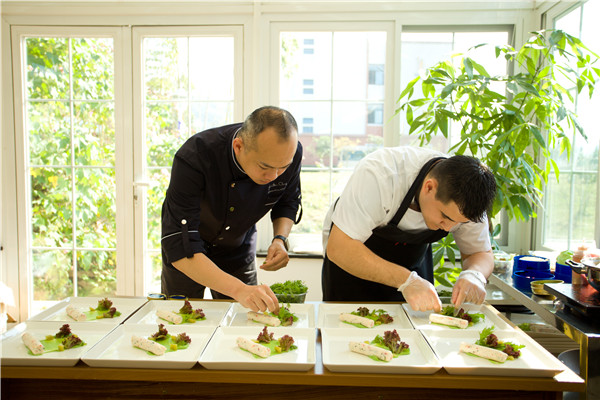Fishy business
 |
|
Chefs Johnston Ang (left) and Deivid Paiva prepare sturgeon caviar rolls.[Photo provided to China Daily] |
Paiva can't resist a hands-on encounter, wrestling a young sturgeon out of a net for a close look at the fearsome-looking fish. By the time he released the creature a few minutes later - sturgeon can be out of water for about 15 minutes with no ill effects - his coat was smeared with red. The chef was unhurt; the bloody marks came from superficial scratches on the fish that farm managers said would quickly heal.
The fish must tolerate a certain amount of handling. Nurtured in pens in the freshwater lake, the creatures must be moved around occasionally - to warmer or cooler water - as weather changes. Sturgeon find their way to water that feels right naturally in the wild, but farmed fish need some human assistance.
When the sturgeon are about 6 years old, their sex becomes apparent. Females are separated and nurtured for up to nine more years, while the males are destined to become fish soup or fish meal.
The company raises five species of sturgeon, each producing caviar with a different flavor and market. Since it was founded in 2003, Kaluga Queen has established an international-standard production center, based on Russian and Iranian technique, that has been certified by quality-control agencies around the world.
The company was chosen to serve caviar at this year's G20 summit in Hangzhou. You don't get invited to place your caviar in front of Russian President Vladimir Putin, whose country is the world's biggest consumer of caviar, unless you are at the top of your game.
















